Why Attend
“Targeted protein degradation promises to be the greatest innovation in small molecule drug discovery in the new millennium.” - Manfred Koegl, Lab Head Oncology Research, Boehringer Ingelheim
With capital investment coming in fast, industry is ready to commercialise the therapeutic potential of PROTACs and molecular glues to build safe, effective targeted protein degradation products. As Arvinas conducts the groundbreaking first PROTAC clinical trials this year, it could be only be a matter of time before PROTACs and molecular glues enter the market.
The European Protein Degradation Congress will bring together leading industry players within big pharma and biotech along with expert academics in the ubiquitin space - providing an open forum and facilitate the sharing of in vitro and in vivo data, as well as build a deeper mechanistic understanding of the ubiquitin pathways and techniques to make the ‘undruggable’ druggable.
Expect to hear strategies to overcome the structural biology, pharmacology and chemistry obstacles associated with the discovery and development of these bi-functional and single entity molecules.
In attendance
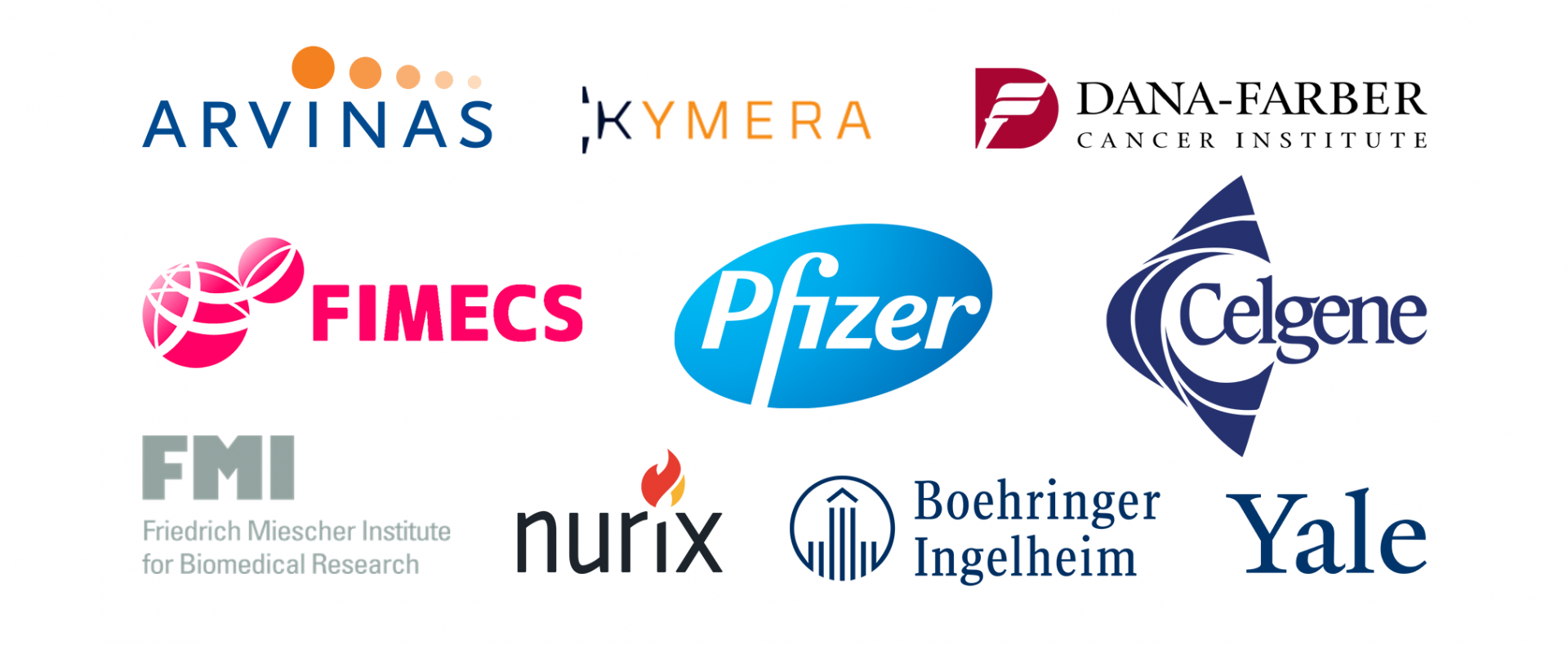
Talk to our speakers about...
1. How to exploit protein homeostasis to identify new proteins for degradation
2. How to find new E3 ligase recruiters
3. What does the next generation of targeted protein degradation products look like?
4. How can chemo-proteomics be used to make the ‘undruggable’ druggable?
5. Structural-based design of PROTAC through crystallography techniques
6. Furthering our understanding of the ubiquitin space.
7. New synthetic molecular glue approaches from auxin scaffolds
8. How mechanistic understanding of the DUBs space is applicable to targeted protein degradation
9. How well do PROTACs work in clinical application – insights into the first human trial
10. Key medicinal chemical considerations for moving from a PROTAC/molecular glue probe to drug
Who Will Be There
-
Pharma
Heads of Chemical Biology, Medicinal Chemistry, Proteomics, Discovery Biology, Pharmacology, Computational Biology
45% -
Biotech
Founder, Chief Scientific Officer, CEO, Chief Technology Officer
15% -
Academic & Research Institutes
Professor - Cell Biology, Research Fellow - Chemoproteomics, Director - Biochemistry
25% -
Service Providers
Equipment Manufacturers (Analysis, HTS), CRO/ CMO, Reagents, Delivery/ Computational Providers
15%
The Speakers

Craig Crews
Dr. Crews is the Lewis Cullman Professor of Molecular, Cellular and Developmental Biology and holds joint appointments in the departments of Chemistry and Pharmacology at Yale University. He graduated from the U. Virginia with a B.A. in Chemistry and received his Ph.D. from Harvard University in Biochemistry. Dr. Crews has a foothold in both the academic and biotech arenas; on the faculty at Yale since 1995, his laboratory pioneered the use of small molecules to control intracellular protein levels. In 2003, he co-founded Proteolix, whose proteasome inhibitor, Kyprolis™ received FDA approval for the treatment of multiple myeloma. Since Proteolix’s purchase by Onyx Pharmaceuticals in 2009, Dr. Crews has focused on a new ‘induced protein degradation’ drug development technology, PROTACs, which served as the founding IP for his latest New Haven-based biotech venture, Arvinas, Inc. From 2008 to 2018, Dr. Crews served an Editor of Cell Chemical Biology and he currently serves on several editorial boards. In addition, he has received numerous awards and honors, including the CURE Entrepreneur of the Year Award (2013), Ehrlich Award for Medicinal Chemistry (2014), Yale Cancer Center Translational Research Prize (2015), a NIH R35 Outstanding Investigator Award (2015), the AACR Award for Outstanding Achievement in Chemistry in Cancer Research (2017), the Khorana Prize from the Royal Society of Chemistry( 2018), the Pierre Fabre Award for Therapeutic Innovation (2018), the Pharmacia-ASPET Award for Experimental Therapeutics (2019) and was named an American Cancer Society Professor in 2018.

Eric Fischer
Eric Fischer, Ph.D. is Assistant Professor of Biological Chemistry and Molecular Pharmacology at Harvard Medical School and a Principal Investigator in the Department of Cancer Biology at Dana-Farber Cancer Institute. His research focuses on understanding the complex mechanisms that underlie function and regulation of multi-component ubiquitin ligases and their role in disease. His work further focuses on new therapeutic approaches such as targeted protein degradation. He co-directs the DFCI Center for Protein Degradation and has been recognized for his pioneering work on the structure of cereblon and the mechanism of action of thalidomide.
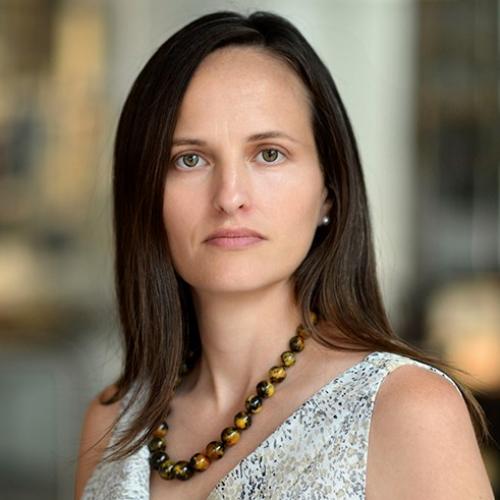
Gwenn Hansen
Gwenn is Vice President of Drug Discovery Technologies at Nurix Therapeutics, a company focused on discovering and developing next-generation therapies that target protein homeostasis through modulation of the ubiquitin proteasome system. Since joining Nurix in January of 2016, Gwenn has focused on establishing the company’s DNA encoded library technology platform for small molecule discovery, and now leads teams of scientists in both early discovery as well as medicinal chemistry. Prior to joining Nurix, Gwenn spent one year as an Associate Professor in the Center for Drug Discovery at Baylor College of Medicine and over 13 years in a variety of discovery-focused roles at Lexicon Pharmaceuticals, both located in Houston, Texas. Gwenn received her PhD in Biomedical Sciences from Oak Ridge National Laboratory in 1998 and completed postdoctoral training at MD Anderson Cancer Center.

Nicolas Thomä
My laboratory has set out to combine structural biology, cell biology and complex biochemical in vitro reconstitutions to address the molecular workings of these chromatin-bound complex assemblies. Our focus is on machines that detect and repair mutations in the DNA, and those that make possible the accurate passage of epigenetic information to the daughter generation.

Sara Buhrlage
Sara Buhrlage, PhD, is an Assistant Professor in Dana-Farber’s Cancer Biology Department and Harvard Medical School’s Biological Chemistry and Molecular Pharmacology Department. Her research group focuses on the development of first-in-class inhibitors and prototype drugs for deubiquitylating enzymes (DUBs) that can be utilized to pharmacologically validate members of the gene family as new targets for cancer treatment and other diseases. DUBs have garnered significant attention recently as potential therapeutic targets in the field of oncology due to their removal of degradative ubiquitin marks from cancer causing proteins.
Prior to joining as a faculty member in July 2015, Dr. Buhrlage was a professional track scientist at Dana-Farber in the medicinal chemistry core laboratory. In this role she collaborated with Institute researchers to pharmacologically validate novel targets of disease and study mechanisms of oncogenesis and drug resistance.
Dr. Buhrlage completed a Doctor of Philosophy in organic chemistry in 2008, under the direction of Professor Anna Mapp, PhD, from the University of Michigan, where she successfully designed, synthesized and characterized small molecules that bind the transcriptional co-activator CBP and upregulate transcription when tethered to DNA. Following completion of her Doctor of Philosophy, Dr. Buhrlage trained for two years in medicinal chemistry at the Broad Institute.
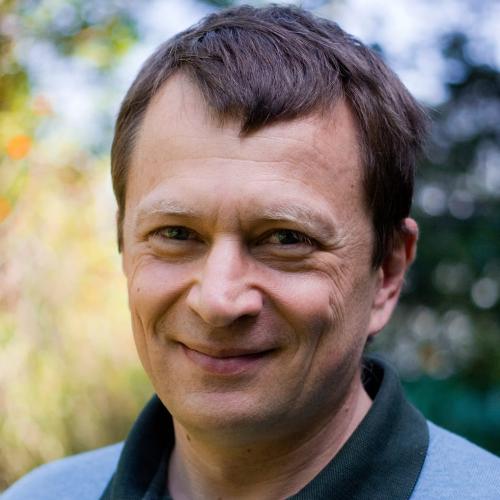
Manfred Koegl
Manfred Koegl is a director in Oncology Research in Vienna, working on the discovery and implementation of new therapeutic concepts in cancer. Presently, his team focuses on targeted protein degradation in cancer cell signaling.
Before 2010, he worked at the German Cancer Research Center in Heidelberg, Germany. He has worked at several small biotech companies in Heidelberg, including Phenex Pharmaceuticals. Manfred Koegl studied biology in Vienna and received his PhD in cell biology in 1994 at the EMBL, Heidelberg.

Adam Gilbert
Adam joined Pfizer in February 2010 as an Associate Research Fellow and a lab head in charge of the Experimental Design Chemistry (EDC) – a group that focused on key portfolio projects with challenging medicinal chemistry design issues including covalent inhibitors, allosteric GPCR modulators, and chemoproteomics. EDC helped drive candidate molecule discovery for Rare Diseases, Neuroscience, and Immunology programs highlighted by PF-06651600 (ritlecitinib), a covalent JAK3/Tec inhibitor, that has recently been submitted as an NDA for Alopecia areata. Adam is currently an Executive Director in charge of Pfizer’s Design and Synthesis Sciences (DSS) Group. DSS is a platform medchem group located in Pfizer’s Discovery Sciences Department in Groton, CT which helps drive key Pfizer initiatives such as protein degradation, DNA-encoded library chemistry, and selection analysis, covalent inhibitor design, vaccine protein design, small molecule purification, and small molecule NMR.
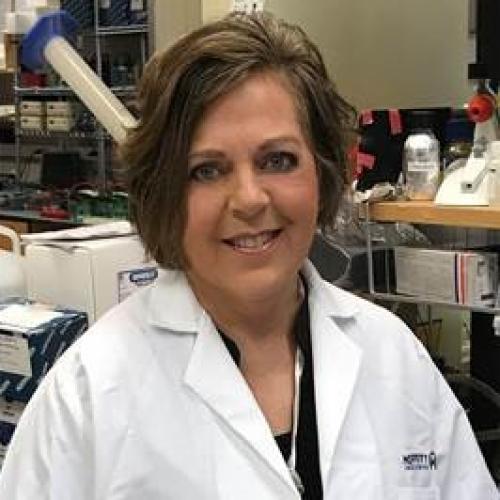
Pearlie Epling-Burnette
I am a Senior Member and Professor at the Moffitt Cancer Center & Research Institute, Tampa, FL. As a member of the Immunology Program, I have made several leading observations on immune deregulations in the setting of bone marrow failure, hematological malignancies, and solid tumors. In addition to collaborations with physician scientist to assist with investigator-initiated clinical trials, I have conducted research studies with collaborators focused on Cancer Prevention and Control to uncover the epidemiology of cancer. My research focuses on drug discovery for the design of new therapeutics, and pathology to improve diagnostic testing for personalized treatment matching. My laboratory research efforts are focused on understanding how to potentiate anti-tumor cytotoxic T cells that have the potential to eliminate tumors. Specifically, I have been evaluating the ability of a class of immunomodulatory drugs (IMiDs) to activate anti-tumor cytotoxic T cells in patients with myelodysplastic syndromes and other cancers. This research as led to the discovery that cereblon (an E3-ubiquitin ligase substrate receptor) is involved in blocking anti-tumor T cell activation. The ultimate goal is to realize the potential of immunotherapy for patients with hematologic malignancies and other forms of cancer.
Success in the lab builds excitement, but always leads to more questions. I feel that research it is a never-ending quest for truth. I first received my Doctorate in Pharmacy before obtaining a PhD. I think this stimulated my interest in drug discovery research. After 25 tireless years of research in the field of immunology, I think we are finally hitting our stride.

Kristin Riching
Kristin received her Ph.D. in Biomedical Engineering from the University of Wisconsin – Madison, where she studied the structural and mechanical properties of collagen fibre networks and their effects on breast cancer cell migration in invasive ductal carcinoma. She joined Promega in 2014 as a postdoctoral researcher to study the pharmacology of ligand-dependent responses within the ErbB signalling network. Currently, she is a Senior Scientist developing technologies and approaches for live cell characterization of protein degradation and protein interactions within the ubiquitin proteasome pathway.

Dr Jason Brown
Jason co-founded Ubiquigent in 2009 in collaboration with the University of Dundee, the Medical Research Council and a US biotech. Ubiquigent’s mission is to support and enable client ubiquitin system targeted drug discovery through the identification and characterisation of novel compounds across multiple therapeutic areas. The company is a provider of such collaborations and services worldwide to both commercial pharmaceutical and biotechnology companies as well as academic groups. Before starting Ubiquigent he was part of a biotech investment and operations group and involved in supporting molecular diagnostics, kinase drug discovery and various other drug discovery-focused service companies, along with evaluating investment opportunities. Prior to this he built and ran a kinase-focused assay development and drug discovery service facility for Upstate Biotechnology, a leading provider of cell signalling research products and services. Jason received his MPhil and DPhil from the University of Cambridge in association with Parke-Davis/Warner-Lambert (Pfizer), during which he identified a voltage-dependent calcium channel subunit as the novel molecular target of the blockbuster epilepsy and neuropathic pain drugs Neurontin and Lyrica. After his DPhil Jason worked in and subsequently ran an assay development group for Parke-Davis.
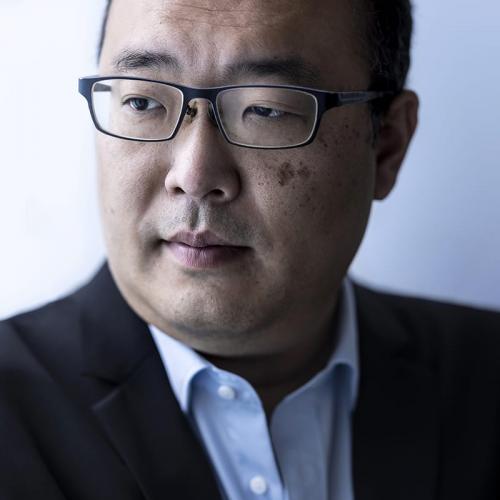
Daniel Nomura
Dan Nomura is a professor in the Departments of Chemistry, Molecular and Cell Biology, and Nutritional Sciences and Toxicology at the University of California, Berkeley. He is also an adjunct professor in the Department of Pharmaceutical Chemistry at UCSF. He is also the director of the Novartis-Berkeley Center for Proteomics and Chemistry Technologies. Dr. Nomura is also an editor for Cell Chemical Biology and Current Protocols in Chemical Biology. He earned his B.A. in Molecular and Cell Biology and Ph.D. in Molecular Toxicology with Professor John Casida at UC Berkeley and was a postdoctoral fellow at The Scripps Research Institute in chemical physiology with Professor Ben Cravatt before returning to UC Berkeley as a faculty member in 2011. Among his honors are selection as a Searle Scholar, American Cancer Society Research Scholar Award, the Department of Defense Breakthroughs Award, and the Mark Foundation for Cancer Research INSPIRE award. Research in the Nomura Research Group is focused on reimagining druggability using chemoproteomic platforms to discover new disease therapies.

Kirti Sharma
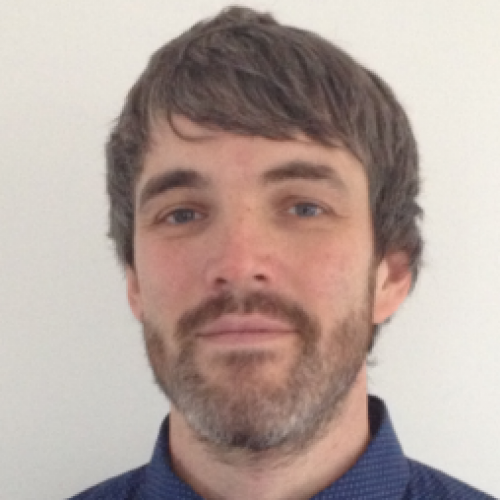
James Hunt
James Hunt is an Associate Director in the Discovery Biology department of Discovery Sciences, which is part of the AstraZeneca IMED Biotech Unit. James leads the Affinity Reagents team, who have global responsibility for delivering antibodies and other affinity reagents for use as research tools to AstraZeneca’s Innovative Medicines and Early Development drug discovery programmes.

Nan Ji
Nan Ji, Ph.D., is Executive Director and Head of Chemistry at Kymera Therapeutics. Nan has more than 10 years of drug discovery experience. Before Kymera, he spent 2 years at Mitobridge (now part of Astellas), where he was responsible for its NAD+-boosting portfolio with multiple approaches to modulate mitochondrial functions. Prior to that, Nan spent 7+ years at Novartis, where he contributed to and delivered multiple clinical and preclinical development candidates. Nan obtained his Ph.D. in Organic Chemistry with Prof. Andy Myers and conducted his postdoc with Prof. Eric Jacobsen at Harvard University.

Anil Vasudevan
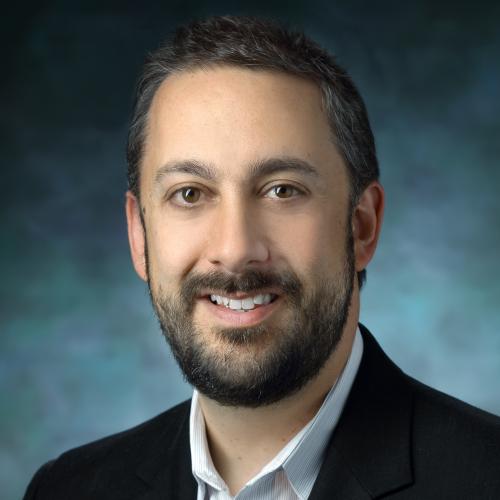
Seth Margolis
Dr. Margolis received his Bachelor of Science in Biochemistry at the University of Rochester (Rochester, NY). In 1999, he joined graduate school at Duke University Medical Center (Durham, North Carolina) in the department of Pharmacology and Cancer Biology. There, Dr. Margolis completed a doctoral thesis with Dr. Sally Kornbluth focusing on molecular mechanisms of DNA-responsive cell cycle checkpoints using the frog Xenopus egg extract system. Following completion of a Ph.D., in 2006 Dr. Margolis joined the laboratory of Dr. Michael Greenberg in the department of Neurobiology at Harvard University (Boston, Massachusetts). During a postdoctoral tenure with the guidance and support of Dr. Greenberg, Dr. Margolis focused his efforts on the molecular pathways that regulate excitatory synapse formation and investigating their relevance to the pathophysiology of the cognitive disorder Angelman Syndrome. In September 2011, Dr. Margolis joined the Department of Biological Chemistry at the Johns Hopkins University School of Medicine as an Assistant Professor. The vast majority of Dr. Margolis work is centered on understanding how molecular mechanisms that restrict synapses during development are reactivated in neurodevelopmental and neurodegenerative disease. To this end, Dr. Margolis and his group use genetically engineered mouse models of disease and a multidisciplinary approach that combines aspect of molecular biology, biochemistry and in vivo synapse imaging in order to develop hypothesis about the underlying cause of synapse degeneration and cognitive decline. They then use genetic rescue or stereotactic approaches to target distinct pathways followed by a wide range of behavioral tasks to assay cognitive function and tests their hypotheses. More recently, Dr. Margolis has developed a new direction focused on cellular protein homeostasis mechanisms related to protein degradation and their impact on changes in the function and physiology of the nervous system. Using a wide range of classic biochemical purification approaches, Dr. Margolis and his team have identified novel proteasome mediated pathways in the nervous system and are just beginning to understand their relevance to health and disease.

Rajesh Chopra
Professor Rajesh Chopra is Director of the Cancer Research UK Cancer Therapeutics Unit and Head of the Division of Cancer Therapeutics at the Institute of Cancer Research in London. He has had experience of working both in academia and industry having been Director of Hematological Oncology, Christie Hospital in Manchester and subsequently in the Oncology Therapeutic area at AstraZeneca.
From 2009-2016, he was leader of the Executive R&D Team and Corporate Vice President of Translational and Early Drug Development at Celgene Corporation, Summit, NJ, where he led a team of over 100 scientists in San Diego, San Francisco and Seville. There he was involved in a large number of drug discovery and development projects and part of a team that helped to define the mechanism of action of Thalidomide and its analogues. In addition, Raj was also involved in the New Drug Applications for pomalidomide (a second generation IMiD agent) and apremilast (a PDE4 inhibitor). Both drugs were approved in 2013 and 2014 respectively.
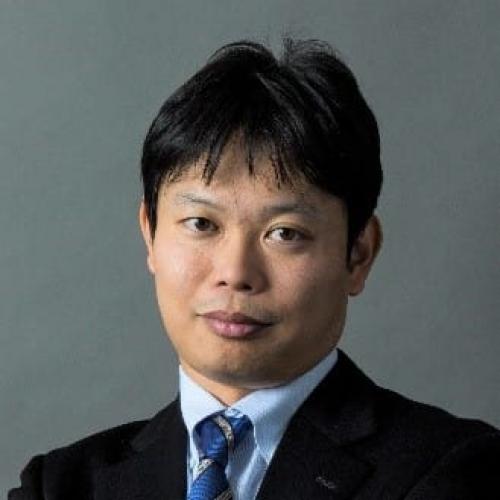
Yusuke Tominari
Yusuke Tominari is responsible for the overall success of a business entity or other organization and for making top-level managerial decisions as a CEO. He launched FIMECS with his colleagues in 2018 as a curve-out biotech from Takeda Pharmaceutical Company Limited. He started his career of a medicinal chemist at Takeda in 2006 after getting a Ph.D. at the University of Tokyo in Japan. His expertise is medicinal chemistry in immunology, oncology and immuno-oncology areas, Natural product synthesis and Chemical biology (Bifunctional molecules, Photo-affinity labeling probes, Cleavable linkers and others). Through his thirteen years of the pharmaceutical experience, he has contributed 2 out-licensing and 1 IND filing as a leader of medicinal chemistry. He is currently having a big challenge, “Drugging Undruggable Targets” by the targeted protein degradation technology with a proprietary RaPPIDS platform.
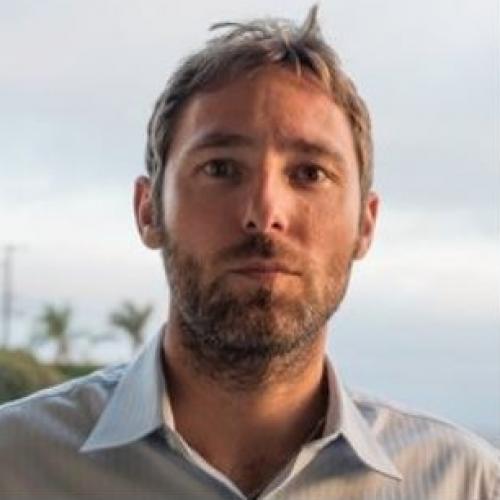
Phil Chamberlain
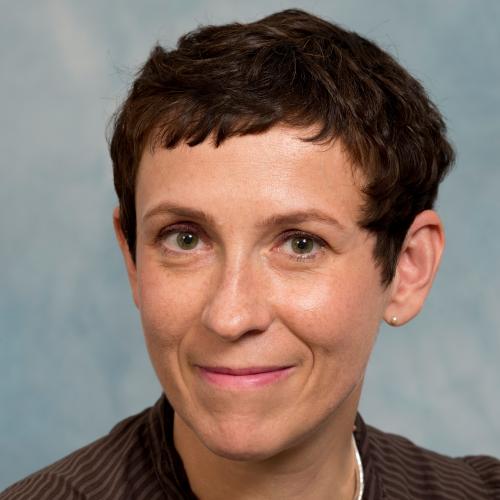
Anne Bertolotti
Anne obtained her Ph.D. from Strasbourg University (France), and did a post doc at The Skirball Institute of Biomolecular Medicine, NYU, New York. She has been a group leader at the MRC Laboratory of Molecular Biology since 2006. She was an INSERM Investigator from 2000 to 2006, was elected an EMBO Young Investigator in 2005, was awarded an ERC consolidator grant in 2013, became and EMBO member in 2013 and won the Hooke Medal in 2014. In 2017, she became a Fellow of the National Academy of Medical Sciences in the UK and was awarded a Wellcome Trust Investigator Award. In 2018, she won the GlaxoSmithKline Award from the Biochemical Society.
Anne has made seminal contributions to our current understanding of protein quality control mechanisms in cells, which represent the cellular defence systems against potentially harmful proteins. She was one of the pioneer in the discovery of mammalian unfolded protein response and more recently discovered the pathways by which cells maintain proteasome homeostasis.
She has also identified mechanisms underlying the deposition of misfolded proteins in neurodegenerative diseases and contributed to a dogmatic shift in this field with the discovery that mutant SOD1 aggregates propagate indefinitely just like prions.
With the knowledge acquired on protein quality control systems, Anne identified strategies to boost their function and is currently exploiting them for the treatment of neurodegenerative diseases. One of the strategy consists in selective inhibition of a phosphatase, an important advance because phosphatases were thought to be undruggable.
Gold Partner
Silver Partner
Innovation Partner
Event Partner
Media Partner
The Agenda
Please download the agenda to find out more information about the congress including the main topics of discussion for the two days and our full lineup of speakers.
What you can expect from the 2019 congress:
- 200+ participants from leading industry players within big pharma and biotech along with expert academics in the ubiquitin
space.
- An open forum to share the latest in vivo and in vitro data and insights and foster collaboration.
- 18+ thought leaders on the speaking agenda and ready to answer your big questions on overcoming translational hurdles.
- 2 days of progressing translation of protein degradation probes into safe, effective therapeutics.
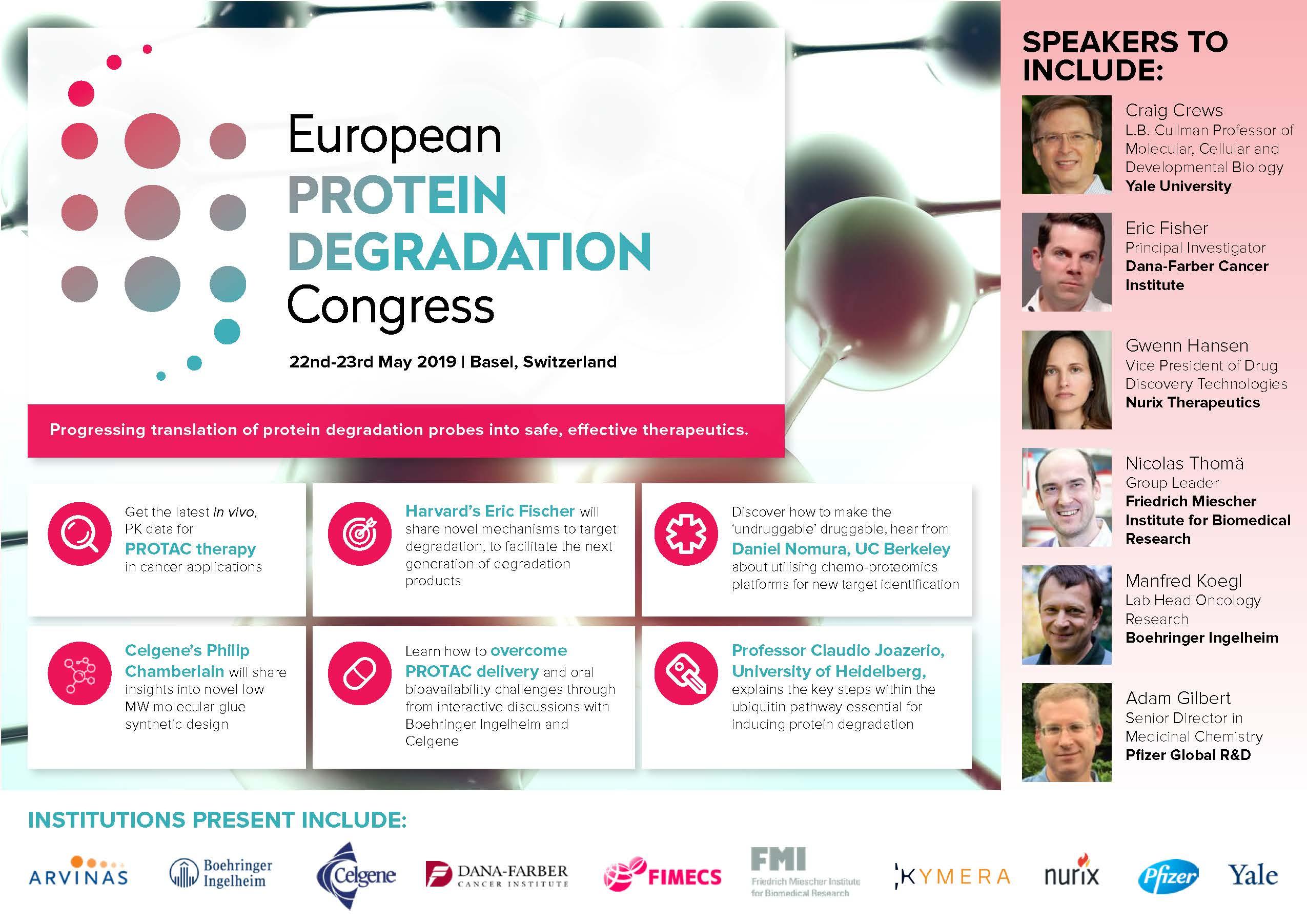
Download Agenda
PARTNER WITH US
Based on your objectives, we can create bespoke packages designed specifically for you. Opportunities predominantly lie in 3 main categories: Thought Leadership, Branding, and Networking.
Interested in a media partnership?
We'd love to hear from you and how we can support one another to connect with the industry. Contact [email protected]
Venue
Hyperion Hotel Basel, Messeplatz 12, 4058 Basel, Switzerland
Special room rate: CHF240 incl. breakfast
Book by 10th April 2019 and quote KISACOPROTEIN19 to benefit from this rate.
Book your room here: https://bit.ly/2Fr1krE
Alternatively, for further assistance to book a room, please contact Eva Mattern in the reservations department on +41 61 560 5601 or email: [email protected]
The special rate is only available on the 22-23 May and is not applicable to dates outside of this.
Please ensure you select the correct dates when booking in order to secure this special rate.
Conference Packages
Sending Your Team? Group Discounts Available!
Applicable for Primary Market, Service Provider and Industry Rates Only. Not available for Academic or ‘Start-Up’ rates
Book a Team of 3+ - Save an Additional 10% Off
Book a Team of 5+ - Save an Additional 15% Off
If you would like to register a team of 3 or more, please email [email protected] for your discount coupon code before registering. PLEASE NOTE: Discounts cannot be combined with Early Bird Pricing or any other discount or offer. If you have any questions about your registration, please call us on +44 (0)20 3696 2920
About Kisaco Research
Kisaco Research produces, designs and hosts B2B industry conferences, exhibitions and communities – focused on a specialized selection of topic areas.
Meet industry peers that will help build a career-changing network for life.
Learn from the mistakes of your peers as much as their successes—ambitious industry stalwarts who are happy to share not just what has made them successful so far but also their plans for future proofing their companies.
Note down the inspired insight that will form the foundation for future strategies and roadmaps, both at our events and through our online communities.
Invest both in your company growth and your own personal development by signing up to one of our events and get started.




